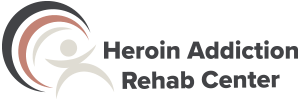Heroin is a highly addictive drug in the opioid family. In many cases, heroin addiction follows from a period of opioid abuse. People can easily develop a tolerance for opioids, which drives them to pursue something stronger, like heroin. For people who have acquired a heroin addiction, any pursuit of recovery will likely involve experiencing withdrawal symptoms. The good news is that learning to recognize the early signs of heroin addiction can ensure you or a loved one seeks help before an addiction becomes severe.
Discover high-quality heroin addiction treatment options in your area to get the help you need.
Signs of Heroin Addiction
The early signs of heroin addiction are split between the physical and the psychological. The short-term, often immediate side effects accompanying heroin use include:
- Nausea
- Vomiting
- Drowsiness
- Itching
- Impaired cognition
Some people also experience atypical side effects that range from anxiety to tremors. Experiencing withdrawal symptoms between instances of heroin use is perhaps the clearest sign of addiction. Heroin addiction symptoms indicate the body is no longer able to function properly without the presence of heroin. Common heroin withdrawal symptoms are:
- Mood swings
- Insomnia
- Diarrhea
- Restlessness
- Muscle aches and pain
How Someone Develops a Heroin Addiction
The way heroin addiction develops looks similar to the pathway for other drugs. A slight difference between heroin and most other drugs is that heroin is highly addictive, and no usage is considered safe. Heroin has a high potential for causing overdoses that can easily be fatal. An outline of the stages of heroin addiction appears below.
Experimentation
Drug use begins with a person’s willingness to experiment and try the drug. No physical dependence exists at this stage. However, early use of a drug like heroin will produce euphoria and a high that may be experienced positively and cloud a person’s judgment regarding the danger and risk of what they are doing. Experiencing an early high from drug use can encourage further use that goes beyond a one-off night of experimenting.
Occasional Use
Experimentation gives way to a period of occasional use. Drug use in this stage may only occur at specific social gatherings or when getting together with friends who provide easy access. People in this stage won’t turn down an opportunity to use heroin but may not go out of their way to find the substance on their own.
Regular Use
Defining a period of regular use depends somewhat on each individual and their relationship to drug use. A decent guideline for what qualifies as regular use is when someone uses heroin during more weeks in a month than not. The regular use stage often sees changes in lifestyle as a person reorders their habits and schedules to allow for the acquisition and use of a drug. This is also the period where negative consequences begin to show and stack up for people.
Outright Addiction
The fourth and final stage is outright addiction. At this point, people using heroin need professional help to stop using heroin and break the hold that addiction has over them. This stage is also when the behavioral signs of heroin abuse become most apparent. Things like secrecy, aggression, sudden changes in mood, or erratic and risky behavior are all behavioral hallmarks of substance abuse.
Treating Heroin Addiction
Detox is always the first step in treating heroin addiction. Before holistic healing can occur, it is necessary to sever the body’s dependence on heroin. Following detox, people in recovery engage in ongoing therapy, access peer support, and are equipped with educational resources and services to support recovery.
Severe heroin addiction often necessitates beginning recovery with residential treatment that specializes in delivering exceptional behavioral therapies. The best therapies for addressing heroin addiction are cognitive-behavioral therapy, dialectical behavioral therapy, and motivational interviewing.
Learn more about heroin addiction treatment and how it can benefit you or a loved one.





